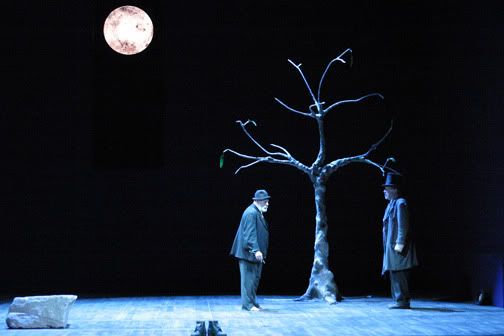I don't know if this has specifically been addressed by someone before, but one dimension to the existential problem is banality of existence. There is a kind of abstract meaninglessness that people like Camus have written about, but there's also a very practical sense of the banality that most of us are, from time to time, conscious of. In short: How do we live a life where we know that the world is so full wrongs and that we are, by and large, powerless to change it?
We live our lives day to day seeking our own happiness as though it carries a deep meaning. We suffer for the most trivial things, and we are put through all kinds of absurdity in order to buy ourselves some comfort in which we can pass our days. We lose, we gain; and after time has had its way, every joy or pain loses its significance. We live in bubbles, painfully focused on the minutiae of our lives but often unaware of the larger things going on around us.
And for our entertainment, we often watch others pass the same banal lives—characters on screens or on pages looking for happiness and revelling in frivolity. Or if we seek an escape, a fantasy, we try to lose ourselves in a world where individuals have power and could shape the world around them; and sometimes this only reminds us of just how unremarkable our own existence is.
Then there's religion or faith. But all it tells us is that, yes, we're powerless, that ultimately we need to depend on a greater power. It only gives an answer to the problem by affirming it and denying that we there is anything we can do on our own.
So how do we do it? How do most of us go about living our daily lives willy-nilly? It's strange, even fascinating.
Perhaps that is the miracle of life.

(0) Comments
Post a Comment